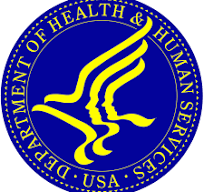Last week Congress passed and the executive signed a budget bill that will raise the federal age of sale of all tobacco products to 21. The provision will apply in Arizona, accomplishing what we’ve been trying to do here in AZ for the last few years.
The policy change is included in an end of year package that funds the federal government for the remainder of FY2020, as well as a number of other policy changes. The tobacco 21 provision is accomplished by amending the Tobacco Control Act of 2009, which established at that time a federal age of sale of 18.
The provision is slated to take effect sometime in the second half of 2020. The Secretary of HHS is supposed to publish a final rule amending FDA regulations to include the age of 21 within 180 days of enactment of the law and is to take effect 90 days after the publication of that final rule.
FDA’s existing enforcement authorities as granted by the Tobacco Control Act will be applicable to the raising of the age of sale to 21 which currently involve joint federal and state enforcement arrangements. The law will also require that age verification requirements extend to those up to the age of 30 from the previous requirement of the age of 26.
The new federal age of sale:
-
Doesn’t preempt state and local tobacco control laws
-
Is applicable to all tobacco products; and
-
Doesn’t exempt any population from the age of sale provision.
In addition to raising the federal age of sale to 21, the law amends existing provisions of the Public Health Service Act related to the Synar Program. The Synar Program was established in 1992 and required states to pass a law prohibiting the sale of tobacco products to individuals under the age of 18, and to enforce the law.
If a states don’t comply with Synar, funding from SAMSHA (Federal Substance Abuse Prevention and Treatment Block Grant Funding) would be withheld.
The current legislation amends the Synar Program in the following ways:
-
Removes the existing requirement that states have minimum age of sales laws to receive substance abuse funding.
-
Raises the age at which states must ensure tobacco retailers are not selling to individuals from under the age of 18 to 21 to receive substance abuse funding.
-
Includes alternative penalties if a state is not in compliance in order to continue to receive substance abuse funding.
-
Includes a transitional or grace period in which HHS can use discretion to enforce State compliance.
-
Includes funding for states to implement this provision.
The Secretary of HHS has 180 days to publish updated regulations or guidance to ensure compliance.
This is a big public health accomplishment. Tobacco remains the biggest cause of preventable death in the US. Because human brains aren’t fully mature until the early 20s, young people are easily addicted to nicotine- hard-wiring their brains and making it much more difficult to quit tobacco later in life.
A special shout-out to AzPHA members Brian Hummell from the American Cancer Society Cancer Action Network and Nicole Olmstead from the American Heart Association for helping me get this right.
